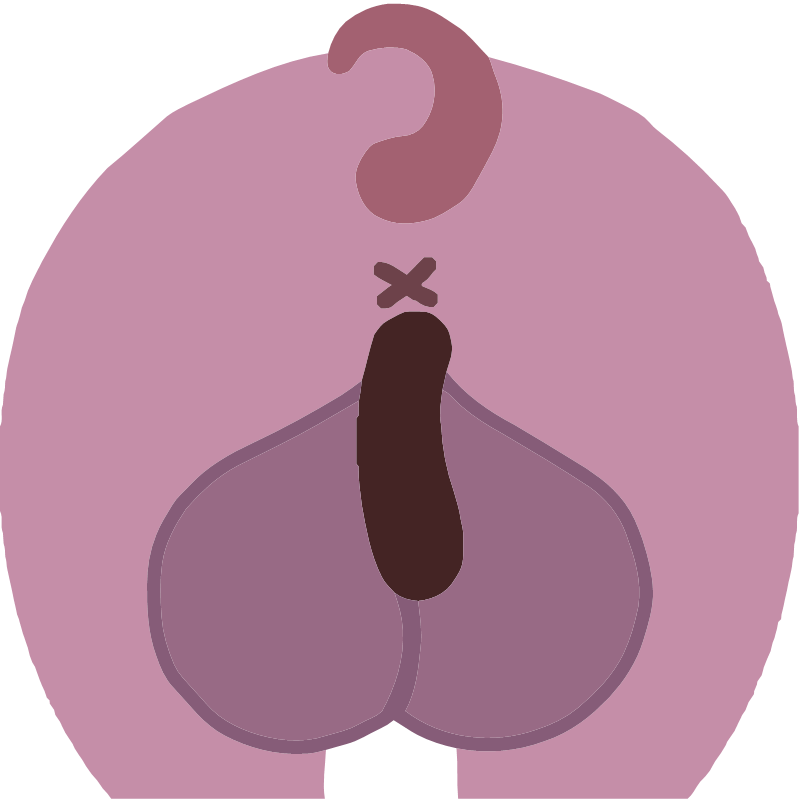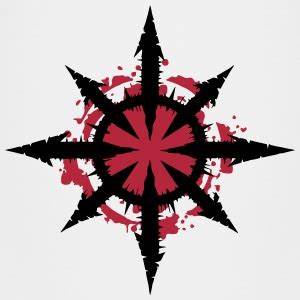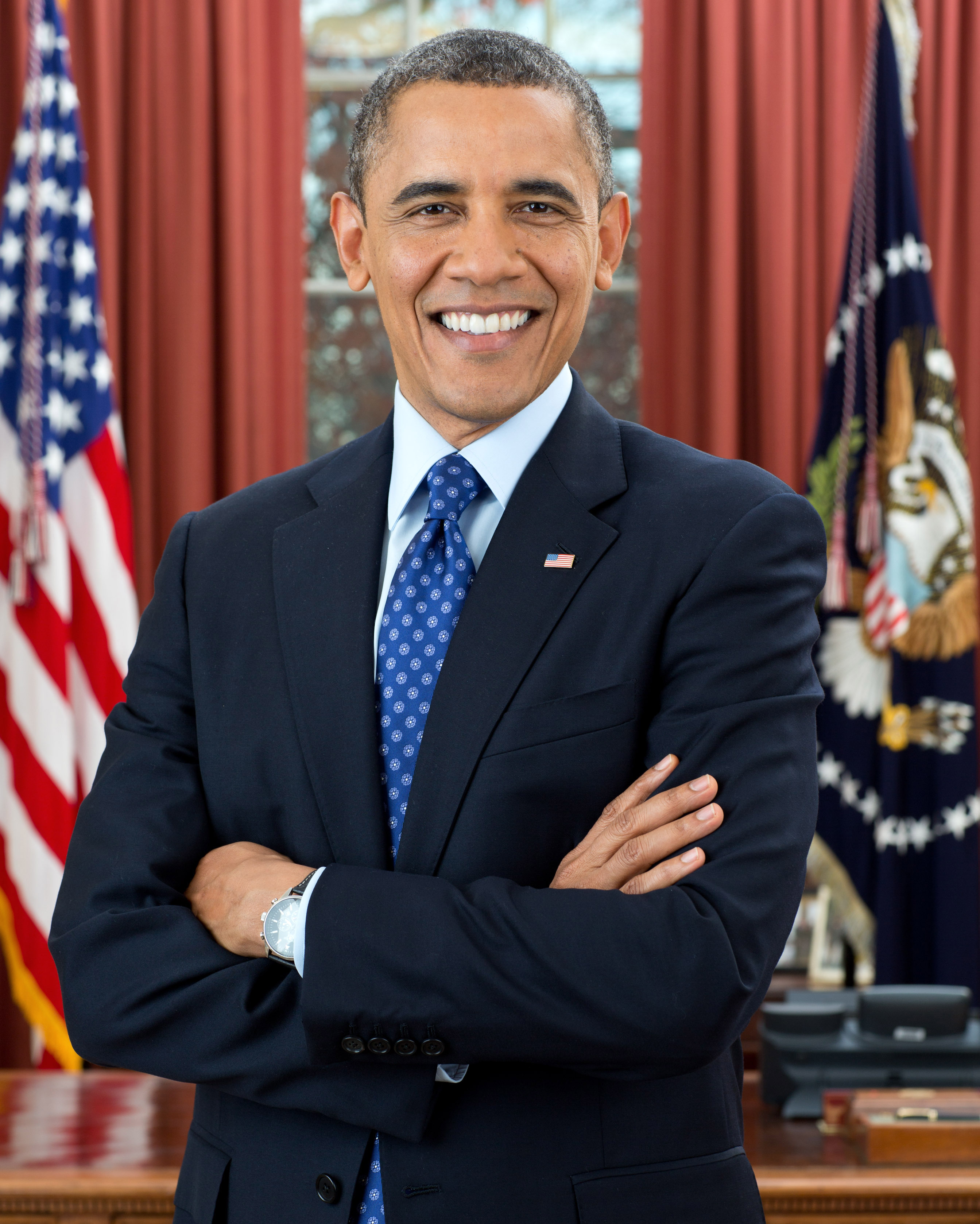Military Junta in Niger has released a statement claiming that ECOWAS has completed its preparations for an Invasion of Niger with at least 2 Members of the Organization
ECOWAS' deadline for the new Nigerien govt to peacefully step down lest they use military action has passed. "A Senior Military Commander with the ECOWAS-Standby Force has told the Wall Street Journal that it’s Forces need more time to prepare before any kind of Military Intervention in Niger, with the “Success” of the Operation being dependent on these preparations"
French Ministry of Foreign Affairs updates travel advisory to Niger, Mali, and Burkina Faso (the three nations declared to defend the new Nigerien govt against military intervention) the highest level of caution
The Nigerian Senate has refused the Nigerian President's request for authorization to deploy troops. I don't claim any expertise or knowledge in Nigerian politics, but it seems like intervention is running into some serious political opposition.
If I were Nigeria I would be thinking really hard about the fact that Niger and allies have Wagner forces in country making it difficult to avoid causing an international incident. There is also the geopoltical nightmare that will come from any ECOWAS soldiers that inevitably fk up by attacking Chinese security contractors guarding industrial and construction sites.
Are the Wagner forces hired by the Niger state? In that case they're legitimate targets are they not?
Nevermind that it would bring down the Russian and Chinese governments on Nigeria if they started killing their people... there is also the fact that Wagner are a battle hardened force that for over a decade has seen non-stop combat in everywhere from Ukraine to Syria. Niger and allies are using a strategy that has proven extremely successful in Syria at preventing western powers from doing another Libya. By inviting Russian and Chinese companies into their nations, it creates a situation where the geopolitical fall out becomes a lot higher for anyone doing a full scale invasion. There is also the issue of the Nigerian military currently fighting multiple insurgencies within their own borders (can't commit much of their military) and Wagner always deploying with Pantsir units that make mincemeat out of aircraft. ECOWARs wouldn't be able to defeat entrenched Wagner forces when Nigeria can't even handle urban fighting at home against various Islamist groups.
Also:

Hang on, if you have citizens in another nation and a war kicks off there, you repatriate them, it doesn't give you the right to declare war since no one has breached your sovereign territory. Lots of citizens from different nations were in Ukraine when Russia invaded, but it didn't start a world war, those citizens were advised to leave by their home nation.
I don't know how to say this, but international law is not really a specific set of magical words that everyone has to respect at all times. It's more like a set of guidelines that smaller nations have to abide by, while the big guys get to do whatever they want. If Russia has an agreement with the people currently holding the reins of power in Niger, there is nothing preventing them from stationing troops (sorry, "mercs") and using them to guard extraction projects that Russia wants. Also, Russia is currently the most sanctioned country on Earth, so I struggle to sort of see what the west plans on doing against them, in particular in light of the general antipathy that West Africa feels towards Europe.
Thirdly, stationing troops in another country as a "tripwire" force is also something that the Americans and other NATO countries have been doing for a while now. Otherwise the miniscule force in the Baltics make no sense, because their one job is to die so that the Americans can declare war on the basis of "their" soldiers being attacked.
I don't know how to say this, but international law is not really a specific set of magical words that everyone has to respect at all times. It's more like a set of guidelines that smaller nations have to abide by, while the big guys get to do whatever they want.
Legal realists rise up!
the actual US troops in the Baltics are also backed up by NATO membership of those nations. the parallel would be if the US had contractors somewhere, and used their deaths as justification for intervention---which to my knowledge the US has not ever done. the US basically never discusses contractors' deaths to launder low official bodycounts for wars. it'd actually be a novel development to launder real or proxy war on behalf of a specifically disavowable asset being attacked.
The death of 4 blackwater mercs was the justification of the first battle of Fallujah. It's not quite the same but I thought it should be mentioned.
They are and they aren't, depending on which stance suits Russia. If Wagner gets attacked and Russia doesn't want further involvement: "Wagner is a private organization and their people chose to head into a potential war zone." If Russia wants to get more involved: "The brave heroes of Bakhmut have been attacked by terrorists."
Their presence creates strategic ambiguity for anyone eyeing an intervention. Them being in Niger forces the Nigerians to ask France for a security guarantee against Russia if Russia gets involved. The French are much less likely to grant that guarantee unless they're confident Russia won't escalate (which they can't know for sure).
I doubt they consider themselves disposable. And its a big operation with a very machismo "If you hit me, I'll hit you back twice as hard" mentality. I would not hit a Wagner unit if I could avoid it, personally.
That's good to hear, because the last thing the continent needs is another Congolese War.
Fucking hell. I hope the 3 Nation alliance can win (or get some support)
ECOWAS either announced or is apparently going announce that they are pushing their deadline back to next week to match the African Union deadline.
I saw those rumors floating around too yea. The only reasons I can think of for this is that they're using this time to do more preparations for the war as well as try and pull other AU nations in as well
Waiting for the AU to potentially join is going to look less like NATO puppetting this whole thing than if Nigeria and Côte d'Ivoire go in.
Somewhere, in a overly air-conditioned room, some yankie and frog-munching bleach demons are drooling to cry havoc and let slip the dogs of war.
ECOWAS will probably steamroll the 3 nation alliance unless Algeria and/or Russia comes in with strong support
Telegrams are suggesting that Wagner are already in Niger. There have been reports of clashes between them and Al-Qaeda along the Niger/Mali border. There have also been mentions of their deployment to the capital of Niger.
I don't think Wagner would be a big help unless they have support from the Russian MoD unfortunately. I think they're far too low tech by themselves to deal with anything more than ClA and DGSE backed rebel groups
I think it's worth looking at a list of Nigeria's military equipment before that assessment. They've about 500 armoured vehicles total and I'd say about 450 of those are uselessly out of date and will not stand up to even the most basic anti-vehicle tools today.
There is no other country from which an attack can be launched on Niger.
Cote D'Ivoire has almost nothing notable so they can be struck off as an invasion candidate, and Ghana has about 250 outdated IFVs and no tanks.
It is extremely possible for an infantry force to beat this shit if they're equipped properly for it and don't fight out in the deserts. If they stick to urban positions I don't think these forces will get them out, just like they have not been able to counter al-qaeda and other islamic extremist groups that are all infantry forces.
Look: https://en.wikipedia.org/wiki/List_of_equipment_of_the_Nigerian_Army
Half this shit is so ancient that I doubt they even deploy it.
One other thing to note: Nigeria is currently fighting against various insurgent groups like Boko Haram. They're not going to send their entire army to Niger.
Wouldn't Nigeria's ~85 deployable aircrafts vs the 3 nations' combined total of ~25 matter a lot more here if we're talking about military equipment?
Every deployment of Wagner I've seen is deployed with Pantsir and they make mincemeat out of large aircraft. From what I've seen the thing the Pantsirs struggle with is actually small drones, it seems to be the most common way the Pantsirs get destroyed.
They're also in Sudan right now and have Pantsirs there too, definitely seen imagery of that.
The JF-17s are probably the only concern? Those are not going to help much against urban positions though and I'm not convinced they won't be shot down by Pantsirs either.
The Military Balance 2023 - Series: Author(s): The International Institute for Strategic Studies
Show
Got years of educated guesses for the military makeup of state actors and sometimes other groups. Your typical library might not have the books, but your typical university (online) library will.
The military spending of the countries is orders of magnitude different. Nigeria with close to 3 billion $ got a lot of potential, though since all countries are large and have tens of millions of people it might be hard to make advances that are not aimed at centers, elites or other powers of some kind of power. Controlling mine territory might ensure financial viability for some (i.e. Boko Haram / ISIS offspring) that had losses in the last years. The de stability from having ISIS bases in your vicinity is obvious and if the conflict becomes a military hot one the states have to spend more resources in combating that again.
Nigeria got 10 times the military spending of Niger for example and 10 times the population. Its army is used in counter insurgency and 100k strong, the navy 25k and air forces 18k numbers are reflecting its ability to maintain craft (list of vehicles is in the book). It also got a 80k strong gendarmerie/paramilitary force.
https://i.imgur.com/uh6ZAi3.png
Mali got with the 20-22 million population of which 1/4 is under 14 around 21k troops, also paramilitary up to 16k could be converted to fighting forces. However if war or military operations on larger and hot scale would break out increase of military size would be needed and that means resources would have to be focused on that, hindering the food security of the country. Some countries have effectively declared to be allied with Mali and some declared to accept the change in government. Since gold export is the main export income of those countries in the height of 10-15 billion they can likely export to other countries in terms of economic sanctions (currently the main countries taking the exports are the Swiss and Emirates with France nearly solely interesting in hundreds of millions of uranium and radioactive ore).
Who is going to supply these military size increases and where are the materials coming from for it? Russia and nato are both practically out of shit, and nato are trying to pretend they're not puppeting this so they're going to try to be less direct. Any size increases are going to be infantry-only, and I really don't think they're going to want to fight Wagner or attack neighbouring countries. I don't think conscription is going to work out.
Nigeria with close to 3 billion $ got a lot of potential
If we assume the Russian state's claim is true that Wagner's entire maintenance costs $1billion (doubt) they are more than capable of going against them. Given that they operate oil gas and other mining facilities bring in a lot, this estimates african mine profits of $1billion, while this estimates $1billion for forestry (of all things), and another $2.7billion for gold, in Sudan $1.9billion, and these are all 2022/2023ish. The money is there and we saw with Ukraine that they're capable of rapidly expanding, I think prison recruitment is likely if a war breaks out.
Interesting book btw, shame it hasn't got better information on Wagner in it. Their only numerical estimate is 10k Wagner working with Russia which I find laughable to be honest. I'm quite sure right now that they're over 50k between all deployments. Possibly higher.
The money is there and we saw with Ukraine that they're capable of rapidly expanding, I think prison recruitment is likely if a war breaks out.
They don't just recruit from Russia but also recruit internationally. By joining, international recruits get Russian citizenship. There are plenty of professional soldiers who due their own nations destabilizing or growing ethnic tensions at home are looking to Wagner for employment. It is alot easier to join Wagner than the French Foreign Legion.
https://www.telegraph.co.uk/world-news/2023/07/15/gurkha-soldiers-russia-wagner-mercenaries-putin/
https://foreignpolicy.com/2022/10/25/afghanistan-russia-ukraine-military-recruitment-putin-taliban/
https://adf-magazine.com/2023/01/wagner-group-turns-to-africa-for-recruits-in-war-effort/
I agree with you that the numbers for Wagner are likely not recent. There is some discussion about Wagner core troops and not as integrated soldiers/mercenaries which (depending on the choice of your source) can push that number up to 25-50k though seasoned troops will be a minority of that number.
Since Wagner interests you I put what is written in the book so you can get its bias and what they did focus on:
Wagner group paragraph
The Wagner Group, a Russian private military company, had been less active since the 2020 Tripoli debacle when it attempted to assault the city. But it maintained a significant presence, estimated to number between 1,500 and 2,000 troops, alongside Haftar’s troops and in key locations, including oil facilities. There was no discernible reduction in this presence after Russia’s full-scale invasion of Ukraine, as Libya remained a convenient pressure point for Russia against Turkey and European countries. Some of the combat aircraft previously associated with Wagner seemed to have been transferred to LAAF control. This situation led to relative quiet in the country but presaged violent competition as new contenders, courting foreign support, geared up to replace existing groups. Moreover, there were continued attempts to rearm.
War in Ukraine
Regional effects of Russia’s 2022 invasion of Ukraine Many states in the region have preferred to remain neutral in the war in Ukraine or have only mildly condemned the Russian invasion without taking measures against Moscow or reducing their engagement. Over the past decade, Russia had emerged as a security interlocutor as well as a possible alternative to the US in the eyes of several countries who were unnerved by fluctuations in US policy and appreciative of Vladimir Putin’s ostensibly effective statecraft. Several countries – notably Algeria and Syria, but also Egypt, Iraq and other smaller states – have been traditional customers of Russian weaponry as well as defence partners, at times also conducting joint exercises with Russian armed forces. Even US regional allies had evoked the possibility of acquiring Russian weapons systems, such as the S-400 air-defence system. Russian military trainers and private military companies, including the Wagner Group, have operated in several countries in the region, including Libya, Syria and Sudan. However, Russian prestige and credibility diminished in 2022, in comparison with a high point in 2015–16, when Moscow successfully intervened in the Syrian civil war. Russia’s operational and military setbacks in Ukraine and the relatively poor performance of its weapons systems have damaged its reputation across the region. It is widely considered that Russia will struggle to innovate in the technological domain and to maintain its export capability given its internal demands and shortages. Concerns about incurring Western sanctions were also thought to be a deterrent for most countries. Importantly, the rapid growth of Russian–Iranian
defence relations has caused significant unease, particularly among Gulf governments. In recent years, Iran had hoped that Russia would help it recapitalise its armed forces. But Moscow, then seen as the senior partner, was reluctant and unwilling to upset Israel and Gulf countries and risk Western disapproval. The Ukraine conflict has made Russia more dependent on Iranian goodwill: Moscow has acquired Iranian UAVs and deployed them in Ukraine. Tehran has supplied the Shahed-131 and Shahed-136 direct- attack munitions and the Mohajer-6 UAV to Russia as Moscow has attempted to fill gaps in its inventory resulting from the invasion. As of November 2022, the initial batch of the Shahed systems appeared to have almost been exhausted in Russia’s attacks. They have been used to supplement Moscow’s inventory of land-attack cruise missiles, which has depleted considerably since it launched its 2022 invasion on 24 February. Russia has also sought Iranian assistance to circumvent Western sanctions.
Lybia
Both the GNA and the LAAF (Lybia) continue to be supported by foreign military forces, private military contractors and mercenaries. There are also reports of Syrian combatants paid to fight for both sides and of continued activity by Russia’s Wagner Group. LAAF troops have combat experience from fighting ISIS in the eastern coastal region and have allegedly received training and combat support from
external actors in the region. Equipment is mainly of Russian or Soviet origin, including items from the former Libyan armed forces, and suffers from varying degrees of obsolescence. The country has no domestic defence-industrial capability.
FOREIGN FORCES
Wagner Group 2,000West Africa
...There is continuing jihadist activity in Burkina Faso, Mali, Niger and the Lake Chad Basin area. Niger’s armed forces are receiving additional equipment. Airlift capacity has been increased with the delivery of a second (of three) C-130H medium transport aircraft from the US, while reconnaissance and attack capabilities will be boosted by the arrival of Turkish-produced Hurkus light-attack aircraft. Reports currently point to only two airframes, while there are also reports indicating that protected patrol vehicles may also be procured. The situation is worse in Mali and Burkina Faso, where the armed forces seized power in
2021 and 2022 respectively. Tensions between France and Mali worsened when the new regime in Bamako failed to implement plans for elections in early 2022, postponing them to 2024. The Malian government’s decision to contract Russia’s Wagner Group has seen ties deteriorate further. This decision came in the context of allegations of apparent information operations designed to foment local opposition to particularly French assistance. Wagner personnel were subsequently accused by observers of committing war crimes. Reliance on Russia may create difficulties for Malian forces, as weapons contracts may be affected by sanctions, and there may be other problems if Wagner personnel – or Russian maintenance personnel – are recalled to serve in Ukraine. France’s military mission in Mali was wound down and redeployed to Niger, and other European states such as the United Kingdom curtailed their military support in the country. Mali’s armed forces have, in recent years, received a range of military equipment, from armoured vehicles and helicopters to C295 light transport aircraft, and in 2022 Bamako received some Russian ground-attack aircraft and attack helicopters. Nonetheless, with the departure of international support missions and a change in military assistance policy by the new government, any progress made in the last decade towards professionalisation is at risk if the focus of military authorities on force-health issues wanes, such as on counter-corruption initiatives. In Nigeria and Cameroon, the break-up into factions of the former Boko Haram terrorist group has complicated the challenge for the armed forces, and analysts fear an escalation in Nigeria as presidential elections approach in 2023. Abuja continues to pursue military modernisation efforts, and the government’s bid to acquire 12 AH-1Z Viper attack helicopters was approved in April by the US State Department (with this then sent to Congress for approval). If acquired, these could be assigned to the army’s planned new light aviation formation. Although the country maintains equipment of diverse origin, and French firms have supplied many of the navy’s recent procurements, in recent years China has also emerged as a significant arms supplier with CS/VP3 protected patrol vehicles and ZSD-89 tracked armoured personnel carrier among the equipment delivered.
Burkina Faso
The effect that these coups, and continuing instability, will have on Burkina Faso’s defence cooperation with France remains unclear. ECOWAS missions have continued to work on processes for a transition to constitutional democracy with the new leadership. In early October, US sources reported assur- ances that Burkina Faso would not extend an invitation to Russia’s Wagner Group, but later in the same month authorities in Ouaga- dougou reportedly indicated that they could review relations with Russia. In recent years, the US donated armoured vehicles and other equipment. Aviation capacity is slowly improving with the arrival of additional helicopters and more modern PPVs. Financial challenges and political instability might hinder broader capabil- ity developments. Without external support, deployment capacity is limited to neighbouring countries. While there are maintenance facilities, there is no defence-manufacturing sector.
Mali
The two military coups in August 2020 and May 2021 and the policies of Mali’s new rulers have accelerated the dete- rioration of security relationships with Mali’s external partners and with neighbouring states. At the same time, the authorities’ political and security partnership with Russia has deepened. In May 2022, Mali left the G5 Sahel security partnership. The Russian private military company, Wagner Group, has been present in the country since December 2021 and has been accused of committing war crimes. Following the recent changes in govern- ment, France in 2021 suspended joint military operations and in early 2022 accelerated the withdrawal of its forces; authorities in Bamako revoked the 2014 defence cooperation agreement and the 2013 Status of Force Agreement with France. France’s Opera- tion Barkhane officially withdrew from Mali in August 2022. The EUTM Mali also decided to reduce its training activities. MINUSMA remains, though some contingents left or have reduced in size. The armed forces still suffer from operational deficiencies as well as broader institutional weakness though there were defence- reform plans, including under the 2015–19 military-programming law
I downloaded the book from libgen but I appreciate the effort anyway, I didn't read the Libya part.
I honestly think Wagner deserves being treated as its own country in this book and it's a shame it is not, it is larger and more powerful than many of them. They should include other PMCs as well. Perhaps they're not confident about the information they can offer though, it seems to change so quickly that it's hard to be sure.
In my opinion they can recruit in-country from the local prison populations and balloon their numbers within weeks/months. They've demonstrated this effectively and managed it very well, all they need to do is repeat the model and it'll be improved over the Ukraine version.
In my opinion they can recruit in-country from the local prison populations and balloon their numbers within weeks/months. They've demonstrated this effectively and managed it very well, all they need to do is repeat the model and it'll be improved over the Ukraine version.
They demonstrated that when they had good standing relations with the country they recruit in and had a common established language. This isn't that true if you want to recruit in prisons in the three country alliance at this point. It also would need changes in laws and have the usual problems of recruiting people from prison.
I do think that the conventional armies of the three countries under the leadership of the effective ruling governments will show to be more important in the West African conflict than the Wagner group. However I might be proven wrong.
Perhaps they're not confident about the information they can offer though, it seems to change so quickly that it's hard to be sure.
That is absolutely true, also it is hard to get real information about Wagner and mercenaries since they like to claim they have plenty members to advertise on the market and at the same time there is disinformation going on by the state actors, with Wagner also having a vested interest in not having their exact numbers exposed on region level.
While I don't like more right of center The New Wars by Herfried Münkler from 2004 it did present some developments in the emerging roles of mercenaries and non state actors in wars and armed conflicts. It would be interesting how within the 20 years after it the assessments ought to be changed. Surely you frame Wagner as very skilled and impactful force that can meet and exceed state actor capabilities in more situations than special operations. Which is a significant change from then.
It seems that in Mali the main priority for Wagner seems to be that which foreign instructors did over the last 80 years.
Nope, they said they're against military intervention and that it's a direct threat to them but nothing about actual support. They even said that they condemn the coup from the current Nigerien govt so it looks like they're trying to remain neutral
https://tass.com/world/1657103
Algeria's statement may have been more about the potential for spillover, since Algeria, like the rest of the Maghreb, is always fighting against small insurgent groups who retreat into the desert and in the event of a war in the Sahel, is probably going to grow much stronger as any weakening of the governments there will allow them to recruit more and more desperate and angry people.
Economic bloc of all the Western puppet states in Western Africa. Look at how Guinea, Burkina Faso, Niger, and Mali all got suspended
https://en.wikipedia.org/wiki/Economic_Community_of_West_African_States
Europe, who is currently having a severe shortage and at great risk of de-industrialization.
Show
I hope the Trans-Saharan Gas Pipeline goes as well for the French as the Trans-Saharan Railroad did.














